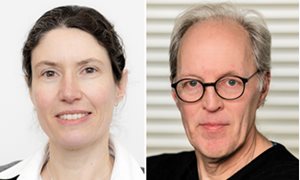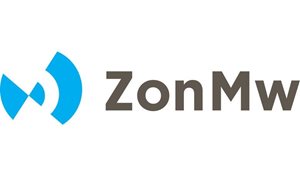 My name is Georgina Flórez Grau, Spanish and I am a postdoctoral researcher at the department of Tumor Immunology, theme Cancer development and immune defense.
My name is Georgina Flórez Grau, Spanish and I am a postdoctoral researcher at the department of Tumor Immunology, theme Cancer development and immune defense.
When you were a kid what did you want to be when you grew up? Can you tell us something about your child years.
I used to dream about studying veterinary as I was spending a lot of time in the nature in contact with animals. Then I changed my mind because I was curious about how all the mechanisms of live being works.
What was your previous academic training, where did you study and why that study?
I have studied biotechnology and then I specialized in immunology during my master. I was really fascinated by how perfectly designed the immune system is and I wanted to manipulated it to revert different diseases such as autoimmunity and cancer.
‘Today’s molecules for tomorrow’s medicine’. What does this mean for you?
That we need to understand how all the molecules of our body works in order to improve the therapies in medicine.
Who is your great example as scientists? And please give a motivation why.
I admire this scientist who cares about integrity and the good science. But more important I appreciate the human being. My PhD supervisor, Daniel Benítez is a great example that being smart and a good scientist doesn’t mean that you cannot be approachable. I am really glad that he taught me important skills for science such as organisation and planification. Since I am in the RIMLS I think I have a lot of great examples as scientists.
Which research discovery that you have made has made you most proud?
I am really proud of every little successful step I am doing on my research because at the end is what leads to your big discovery. If I have to choose one in particular I would say that I am really proud of being involved in a clinical trial for multiple sclerosis patients using tolerogenic dendritic cells.
Given unlimited finance what experiment would you perform?
One of the current limitations of immunotherapy using natural occurring dendritic cells subsets is the low frequency of this cells. I would like to set a research line which involved the generation of dendritic cells subsets from blood precursors in order to have enough cells to prepare the vaccines.
What does your working area (desk, office) look like and what does it say about you (or your research)?
When I am performing experiments it is a little bit of “chaos” however I always try to keep the things I am doing as much organised and planned as possible.
What type of person are you, quick insights:
a) Mac or PC? : Macb) Theater or cinema? : Theater
c) Dine out or dine in? : Dine in
d) Ferrari or Fiat? : Fiat
e) Shopaholic or chocoholic? : Chocoholic
f) Culture or Nature : Nature
Related news items

ZonMw Open Competition Grant for Annemiek van Spriel and Piet Gros
15 June 2021 Annemiek van Spriel, theme cancer development and immune defense, together with Piet Gros, Dept. of Chemistry, Utrecht University obtained a ZonMw Open Competition Grant to investigate IL-6 receptor structure and signalling in tumor cells. go to page
HFSP Grant for Johannes Textor
30 March 2020 Johannes Textor, theme Cancer development and immune defense, has been awarded a program grant of 1 million US dollars by The Human Frontier Science Program (HFSP) to investigate how T cells navigate extremely dense environments using experiments, modeling and methods from pedestrian dynamics. go to page
Human pDCs attract cytolytic lymphocytes in anti-cancer vaccination
6 February 2020RIMLS researchers Jasper van Beek and Jolanda de Vries, theme Cancer development and immune defense, discovered that pDCs can efficiently recruit cytolytic immune effector cells, a property that could be exploited in anti-cancer vaccines. They have published these findings in Cell Reports.
go to page
ZonMw funding for teams of Michiel Vermeulen and Jolanda de Vries
4 February 2020The awarded research projects of RIMLS researchers Michiel Vermeulen, Jolanda de Vries, Gerty Schreibelt and Martijn Verdoes and colleagues will initiate new research lines and collaborations between various research groups.
go to page
Niels Stensen Fellowship for Jorieke Weiden
6 January 2020 Jorieke Weiden was recently awarded a grant from the Niels Stensen Fellowship. Since the 1960s, the Niels Stensen Fellowship has been awarded annually to outstanding researchers who recently received their PhD to enable them to gain research experience at a top university or institute abroad. go to page
